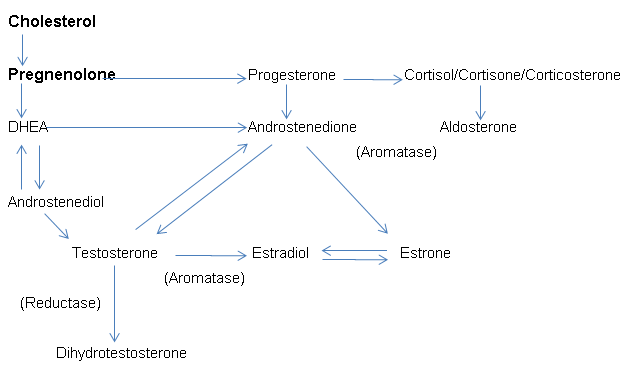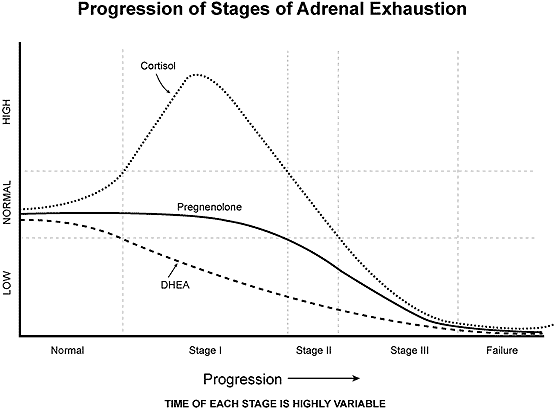|
Imagine yourself tasked to roll a large tire up a hill. The body uses fuel and nutrients to perform this job. This fuel used comes from food we eat. Normally, our bodies use carbohydrates as quick energy, fats as slow burning sustained energy, and proteins as building blocks for tissues, neurotransmitters, hormones, and many other things. A nutrient dense properly prepared whole food diet is one of the foundations we build upon to achieve a healthy body. The other foundations are staying hydrated, mineral balance, stable blood sugar, strong digestion, and fatty acid balance. In order for you to be able to roll that big tire up the hill, stamina is needed. Conditioning is definitely part of building stamina but other factors come into play also. One very important and often neglected key part of the body are the adrenal glands. The adrenal glands are walnut sized, pyramid shaped, and they sit on top of the kidneys. They are really two glands in one, in the sense that each gland is separated into two parts; the cortex and the medulla. Each section produces different hormones. The cortex, which makes up 80% by weight, produces three classes of hormones the mineralocorticoids, glucocorticoids, and to some smaller extent androgens. The main mineralocorticoid produced is aldosterone. Aldosterone tells the body to retain sodium, excrete potassium, and retain water. The main glucocorticoid is cortisol. Cortisol has many functions in the body, here are some of the main ones:
The medulla section of the adrenal glands makes up about 20% by weight and produces two very important hormones, epinephrine (adrenaline) and norepinephrine. When we need to react quickly in a life or death situation, we need adrenaline pumping through our veins to stimulate our skeletal muscles to move fast. At the same time blood is shunted away from the digestive organs. If everything is working right our body adapts to stresses and moves on to the next event in our lives without any problems but if we start to slip in our health stress can have a lasting impression, in a negative way. The adrenals are usually the first to get hit when stress enters the body. They help us to adapt to the stress and not be run over by it. When our adrenals start to suffer we could have various symptoms like these:
So, how does adrenal fatigue affect athletic performance? In the beginning stage cortisol is elevated causing sudden weight gain, trouble sleeping, indigestion, brain fog, mental difficulties, depression, frequent sickness, and muscle loss. Elevated cortisol also raises blood sugar putting additional strain on the pancreas. Muscle loss is caused by the catabolic nature of cortisol. One of cortisol’s actions is to raise blood glucose by breaking down muscle and collagen tissue (catabolism). This is a built-in reaction of the body when under stress for long periods of time. Losing muscle is not good for anyone, especially for an athlete.
As the body continues to be ravaged by stress, cortisol production can start dropping off due to the adrenals tiring out. This modern age we live in is packed with stress and the adrenals try to buffer this hit; but after years of abuse they can’t keep up with the demand. So, with the dropping of cortisol levels comes increased and new challenges. When cortisol levels drop below the normal range we see the existing symptoms worsen and new symptoms emerge. Some of these new symptoms are lowered immune function, inflammation, sleep disturbances, hypoglycemia, low thyroid function, nausea, joint pain, low blood pressure, and weakness. All of these new symptoms are worrisome, but when blood sugar can’t stay normalized every cell is in jeopardy. Hypoglycemia is simply low blood sugar. According to the American Diabetes Association, hypoglycemia occurs when the blood sugar levels drop below 70 mg/dl. Glucose is used by every cell in the body for energy. Low energy levels not only affect how you feel but also the functioning of all the organs and glands of the body. If your organs and glands don’t have the right amount of energy to function then the jobs they are meant to do are not fully done. Processes like detoxification, metabolism, rebuilding, and digestion become very low functioning and the body suffers. Some symptoms of hypoglycemia are:
So, is there anything we can do about this downward spiral? Yes! Many people under the guidance of a skilled practitioner have reversed the effects of adrenal fatigue. Some take home strategies that you can implement immediately are:
With the right help and perseverance health can return. Don’t lose hope! A joyful heart is good medicine, but a crushed spirit dries up the bones (Prov 17:22). Written by Paul Walker NTP student
0 Comments
|
EditorOur blog editor and Athlon Nutrition founder Sara Jane Weidner holds her Bachelor of Science in Nutrition Science from California Polytechnic State University San Luis Obispo. See citations in each post for author credits. Archives
January 2021
Categories |



 RSS Feed
RSS Feed